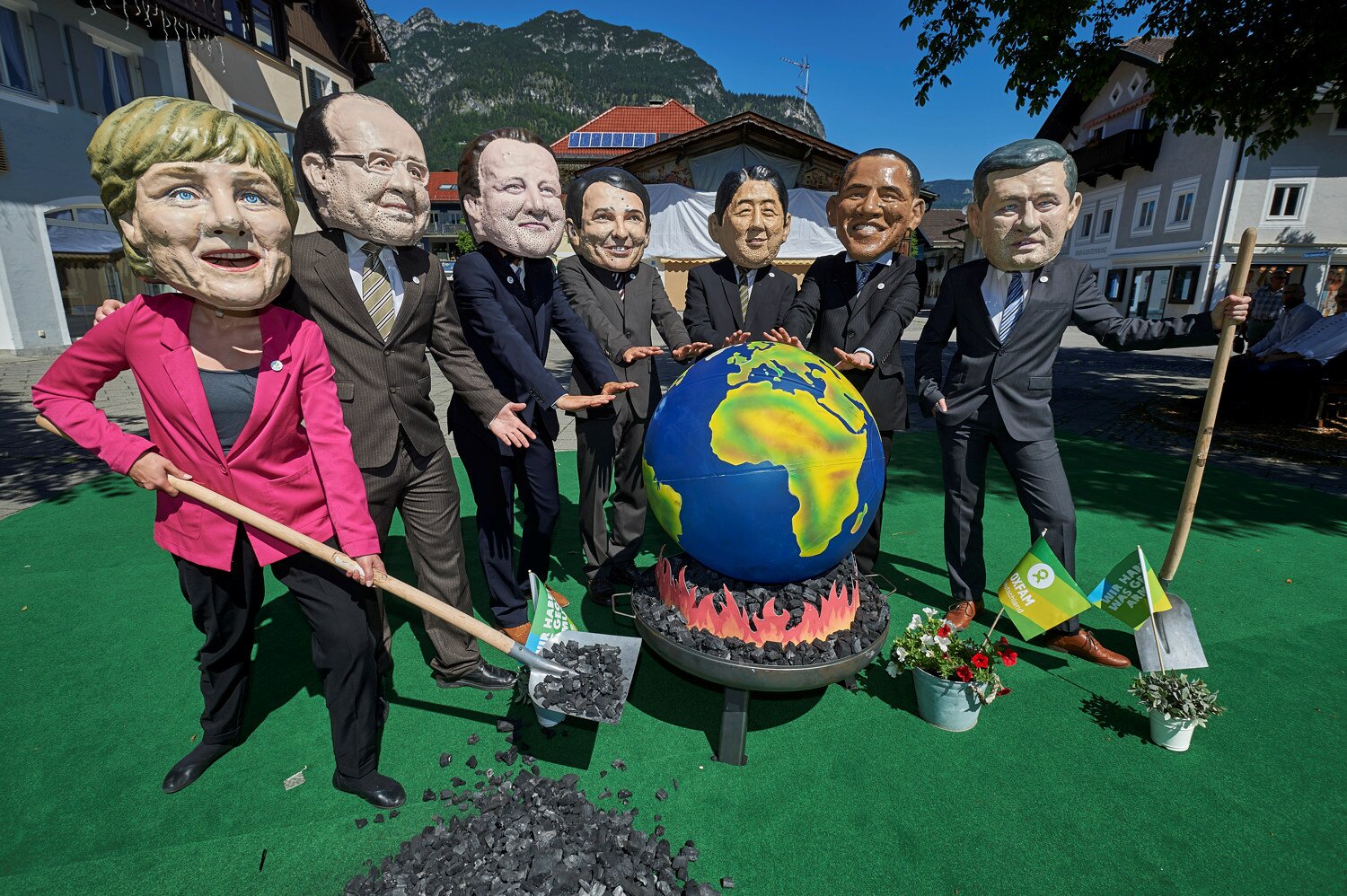2015年6月06日
G7 coal dependence set to cost world US$450 billion a year by end of century (只有英文版)
Coal plants in the G7 are on track to cost the world US$450 billion a year by the end of the century and reduce crops by millions of tonnes as they fuel the pace of climate change, Oxfam reveals today.
In its new report, ‘Let Them Eat Coal’, which has been endorsed by business leaders, academics and climate experts, Oxfam warns that coal is the biggest driver of climate change, which is already hitting the world’s poorest people hardest and making the fight to end hunger tougher. The G7 countries remain major consumers of coal.
The international agency reveals that Africa faces costs of US$84 billion a year by the end of the century due to the damage caused by G7 coal emissions. This is 60 times the amount Africa currently receives from the G7 in aid to support agriculture and food production.
The Intergovernmental Panel on Climate Change (IPCC) has warned that Africa's food production systems are highly vulnerable to climate change, with declines of up to 35 per cent likely in cereal crops across the continent by mid-century. Oxfam warns that seven million tonnes of staple crops could be lost annually by the 2080s because of G7 coal emissions.
Oxfam says G7 leaders should shift from coal to renewables, which offer a safer and cost effective alternative and the prospect of millions of new jobs around the world. This would also be a giant step towards the G7 not only meeting current emissions targets but moving closer to what is urgently needed.
Celine Charveriat, Oxfam International’s Director of Advocacy and Campaigns, said: ‘The G7 leaders must stop using emissions growth in developing countries as an excuse for inaction and begin leading the world away from fossil fuels by starting with their own addiction to coal.
‘The G7's coal habit is racking up costs for Africa and other developing regions. It's time G7 leaders wake up to the hunger their own energy systems are causing to the world's poorest people on the frontline of climate change.’
Oxfam says that the G7 must lead the way because they are most responsible for climate change. The G7 also have the most resources to decarbonise their economies and fund both emissions cuts and adaptation so that developing countries can protect themselves from climate change and develop in a low-carbon way.
Oxfam is also calling on the G7 to stand by existing commitments to jointly mobilise US$100 billion a year by 2020. Additionally, Oxfam wants to see progress from the G7 in both raising public finance over the next five years and increasing the proportion of funding for adaptation.
At Copenhagen in 2009, all countries agreed to prevent warming of more than 2°C to avoid runaway climate change, but the world is now on track to warm by 4°C. Five of the G7 countries since then are burning more coal: France, Italy, Japan, the UK, and the host country Germany.
Oxfam’s report analyses the different energy mixes of each G7 country and sets out when each one can feasibly become coal-free. Country-specific plans and policies could ensure the shift from coal is achieved in France by 2020, Italy by the early 2020s, the UK by 2023, Canada and the US by 2030, Japan by 2035 and Germany by 2040.
G7 leaders will be talking about decarbonising their economies at the Summit. Oxfam says this is an opportunity for leaders to set the tone towards the crucial UN climate talks in Paris at the end of the year.
- Ends -
Oxfam is calling for G7 leaders, pictured barbecuing the planet at the G7 Summit, to kick their dirty coal habit.

